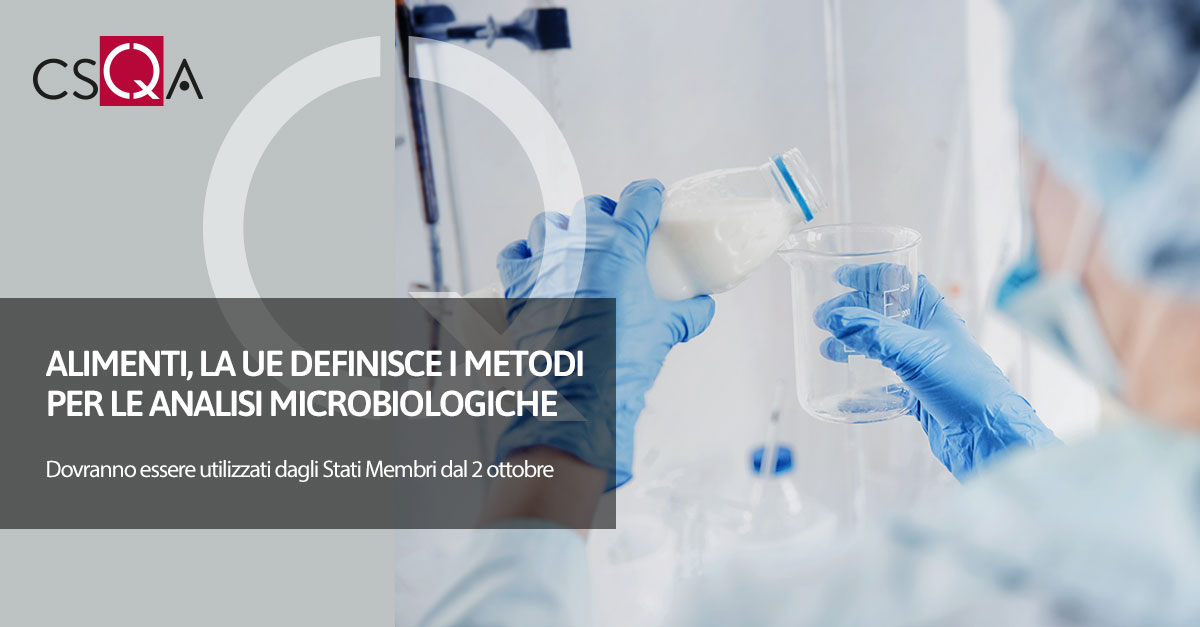 The European Commission has published Implementing Regulation (EU) 2024/2463 in which it has defined the methods to be used for the microbiological analysis of official food samples.
The European Commission has published Implementing Regulation (EU) 2024/2463 in which it has defined the methods to be used for the microbiological analysis of official food samples.The Regulation will enter into force on 2 October and is mandatorily applicable in all Member States.
In Europe there is no specific legislation on the methods to be used for laboratory analyses in the context of official controls to verify compliance with Regulation (EC) No 2073/2005.
This situation - says the European Commission - could negatively impact the quality of official controls and food products as well as create distortions of competition.
This is why the Commission deemed it appropriate to intervene with Implementing Regulation (EU) 2024/2463.
Official and alternative methods in derogation
The new Regulation requires that - when analysing samples taken during official controls - official laboratories use the analytical methods set out in Annex I to Regulation (EC) No 2073/2005 for L. monocytogenes, Salmonella, E. coli, etc.By way of derogation , the competent authorities may authorise official laboratories to use alternative analytical methods, including proprietary methods, provided that such alternative analytical methods are validated.
Therefore , the "proprietary" alternative methods will have to be certified by an independent certification body , to demonstrate that the manufacturer's production process guarantee has been assessed and is subjected, at least every five years, to a re-evaluation.
The context
Food products (meat and meat products, milk and milk products, egg products, fishery products, vegetables, fruit and derivatives) must not contain microorganisms, or their toxins or metabolites, in quantities such as to represent an unacceptable risk to human health .Food business operators must adopt self-control procedures (HACCP) to comply with the microbiological criteria - regarding bacteria, viruses, yeasts, molds, etc. - defined by Regulation 2073/2005.
In the context of official controls, the competent authorities must designate official laboratories to carry out laboratory analyses, tests and diagnoses on the basis of samples taken during the controls.
The new regulation (EU) 2024/2469 identifies the analysis methods that official laboratories must use. (Source: https://www.anmvioggi.it/ )